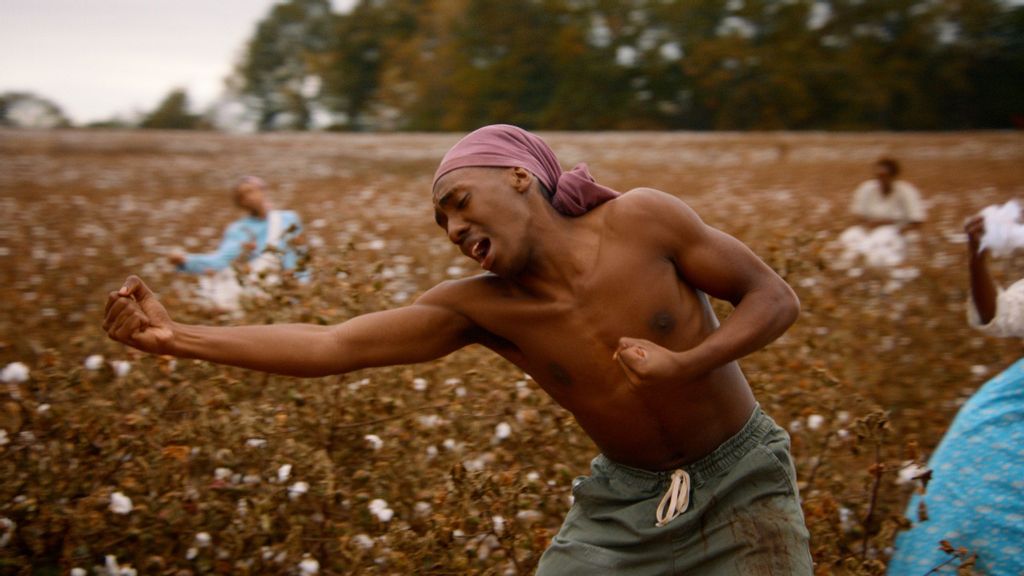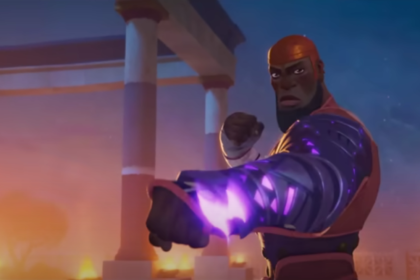
ORANGE COUNTY, Calif. — Deborah Jane’s vision of her stage play turned, short film began when she was just 12 years old. While still a pre-teen she says she expierienced a vision of slavery days allowing herrevisit the root of racial hardships in order to start the healing process of racial reconciliation.
Going backwards to move forward, “Strange Fruit” adds a visual to this very thought, dream, turned into a short film. ane tells this story through music, particularly, “Hip Hopera.” “Strange Fruit” serves as a unique way to go back to the painful history of enslaved blacks as a tool to not let history repeat itself. Once a stage play, Jane got a vision to putting “Strange Fruit” on the big screen. An eye-opening film that crosses the safe boundaries of political correctness, “Strange Fruit” is sure to impact those in search of racial reconciliation, a more diversified culture, and those seeking a better understanding of black culture.
Deborah Jane shares her vision for “Strange Fruit” with Zenger News.
Zenger: What made you go with the name, “Strange Fruit” for this film?
Jane: “Strange Fruit” was a Billie Holiday song, sung in the 1930’s, which is an anti-lynching song. At that point black bodies were swinging from trees, so Billie Holiday sang that as a way of protesting. It took a lot of courage for her to do that. That’s the original version of, “Strange Fruit.” For our version of “Strange Fruit: Hip-Hopera,” is a musical about racial reconciliation told through rap, song, and dance. It’s kind of like “Hamilton” meets ”12 Years a Slave.” The story is about a modern day African American woman, Wall Street executive who travels back in time to the 1800’s to rescue her ancestors from a lynching. That’s why it’s called, “Strange Fruit.” She does all of this because she’s in an interracial relationship, she wants to marry the love of her life, she’s black and he’s white, so she’s going back to break this generational curse. Ultimately, it is about racial reconciliation and going backwards in order to go forward. Which is the theme.
Zenger: Given the climate of the culture right now, how important is a film like “Strange Fruit?”
Jane: I think this film has always been critical, but the current cultural climate makes it all the more critical. We just had Ralph Yarl shot in the head for being black and knocking on a door. 3 years ago, it was George Floyd and so many in between that. The killing of black people has been a part of American culture. Unfortunately, it has been a part of what makes America-America because it’s in the DNA. These killings are all sort of like lynchings. Ralph Yarl was a “Strange Fruit,” George Floyd was a “Strange Fruit,” Trayvon Martin was a “Strange Fruit.” These are black bodies that should not have been killed, but they were.
Why is this film so critical? It’s critical because in order for America to progress as a nation and society, we have to go back and face the “Strange Fruits,” of our past. That’s what we don’t do. We don’t do it nationally. We do it in pockets, we do it here and there, but we don’t do it nationally. When you don’t face the past, when you don’t deal with it, you simply repeat it. You can look at Ralph Yarl and say, that’s Emmett Till. It’s a repeated cycle because the root of why it’s happening was never addressed. That’s the heart and theme of this film. “Strange Fruit,” is God’s message to America that he gave to me to share with the world through film and through the language of hip-hop, which is the revolutionary language of the people.
Zenger: Why did you feel it was imperative to switch “Strange Fruit” from stage play to film?
Jane: This has been a 20-year journey. I first wrote and produced it as a play at Stanford University where I was an undergrad. When we produced it, it took everything I had to do it at that point. I remember taking a bow and getting a standing ovation. I won a plague, people were crying, and this elderly black woman came up to me and said, “Thank you for telling my story.” It was an incredible moment. The audience was multi-cultural, black, white, Latin, different ages, and they were all moved. I remember taking a bow, and when I got up… I’m very spiritual and in tune with the spirit. When I got up, God said, “This is just the beginning.”
At that point, I didn’t know what that meant. After that I was trying to break into Hollywood. I started at the bottom. I was scrubbing floors as a PA [personal assistant] on different films and TV sets. That’s how I jumped into the business, and at that point I realized, if I wanted to see something on screen, I would have to learn how to write. I have always been a writer, since I was 12. At Stanford I studied creative writing, but I didn’t know how to write a film. God told me that I needed to take the play and turn it into a film. It was like a directive. I got into USC Film School, I got my master’s in screenwriting and that’s where I rewrote it into a feature film. Then I launched my company, House of Deborah Jane Studios after graduation. We just started bum rushing Hollywood. We started knocking on doors trying to get meetings with executives and start pitching. Executives would love what we were pitching but they didn’t always see it. And I understand that. I launched a Go Fund Me, we raised $5,000 in a little over a month while I was marching in the 2020 “Black Lives Matter” movement.
I’m originally from Orange County, I was raised in a predominantly white suburb. My parents are Caribbean immigrants and they planted us there. We were the only black family on the block pretty much. My first black friend was at Stanford. That experience of isolation, seeing division, seeing racism and experiences it, while also having a great upbringing, it inspired me to create and make content that leads to social change. Because of that experience, I was always looking for my roots. I used to beg my mother to go to the library and read slave narratives. I was terrified and fascinated by what I was reading. It all started at 12.
Fast forward to now, God brought me back to Orange County, and I never thought I would go back from L.A. to Orange County, but here we are. I’m here making this short film. I’m blessed to partner with this amazing church called, “The Sound.” There amazing pastors got behind me. They love movies and cinema, racial reconciliation. They are all white, so I didn’t expect it. They got totally behind me. They gave $5,000, they created our logo for us, and they have been supportive this whole time. Through all of this, we created our short film, which will be our proof of concept. Last year, my company and a team of sixty people flew to the cotton fields of Georgia, and we filmed a cotton field scene. It’s a musical dance number in the cotton fields. That is a scene from “Strange Fruit.” On April 30th we premiered the short film that we shot in Georgia, in Santa Ana in Orange County. We had a panel on racial reconciliation. We also had some heavy hitters like a council member from Santa Ana, Johnathan Hernandez, NAACP Orange County Youth Director, Justice Crudup. There was also a musical performance that shows the making of “Strange Fruit,” and how we got here from 12 years old to now.
Edited by Virginia Van Zandt
Recommended from our partners
The post Deborah Jane’s ‘Strange Fruit’ Film Revisits The Past To Fix The Future In Racial Reconciliation appeared first on Zenger News.










